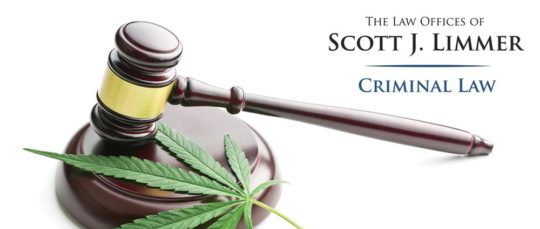If your travel plans include flying out of Fort Lauderdale, Florida, you’d be well-advised to make sure your clothes don’t have a lingering odor of marijuana. That’s because the police there has a habit of screening departing airport passengers for that telltale aroma, and when they detect it, relieving those passengers of the cash they’re carrying.
Smelling like Marijuana in Florida Considered as a Tell-Tale Sign of Drug Trafficking
Since 2016, a narcotics and money laundering task force run by the Broward County Sheriff’s Office has brought at least 16 civil forfeiture actions involving 20 travelers who were suspected of drug trafficking. In those cases, the police alleged that officers, sometimes accompanied by K-9 police dogs, detected the odor of marijuana on the traveler’s person or clothing.
Aside from smelling like marijuana in Florida, police complaints also cited additional grounds for suspicion, such as the fliers were headed for California, had bought their air tickets within the past few days, carried sizable amounts of cash, or police dogs trained to detect drugs had alerted to cash the passenger possessed. Only three of these travelers were able to recover at least some of their property, after going to court to contest the seizures.
Civil asset forfeiture has roots in 17th-century British maritime law, but it gained prominence during Prohibition when law enforcement seized vehicles, facilities, and other property used by bootleggers. During the 1980s, the tactic returned, supporting new anti-drug laws. An anti-crime law passed in 1984 let cooperating state and local law enforcement share in seizures by federal agencies.
Long controversial, civil asset forfeiture in most states can be invoked even where the defendant has not been convicted or pled guilty to any crime. As the name suggests, a civil asset forfeiture complaint filed by officials need only meet the less demanding standards of civil, not criminal, law.
Critics further complain the large sums gained through civil asset forfeiture distract some law enforcers from crime-fighting in favor of seeking lucrative seizures, sometimes at the expense of innocent property owners. A Department of Justice inspector general’s report in early 2017 found that in the previous decade the federal Drug Enforcement Agency had seized over $4 billion in cash; $3.2 billion of that total wasn’t linked to any proven crime by the cash’s owner.
A few states have entirely or largely curbed civil asset forfeiture, either by allowing forfeiture only in criminal court proceedings or by requiring a criminal conviction, raising the required standard of proof, earmarking seized assets for a general state fund rather than giving them to the law enforcers making the seizure, mandating greater disclosure on what happens to seized assets, or providing greater protections against seizure to property owners innocent of wrongdoing.
In February this year, the U.S. Supreme Court in Timbs v. Indiana unanimously ruled the state and local governments are bound by the Eighth Amendment’s ban on excessive fines and fees. In that case, a man who pled guilty to selling heroin to undercover police was not only sentenced to a year of house arrest plus five years of probation but also had his $42,000 Range Rover taken through civil forfeiture.
About the Author

Scott J. Limmer is a New York criminal attorney practicing primarily in Nassau, Suffolk, and Queens counties. You can contact Scott anytime. He is available 24 hours a day, 7 days a week, year-round and your initial consultation is free.
